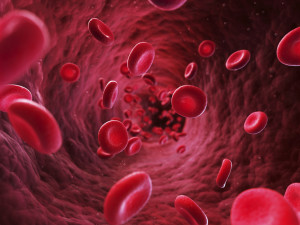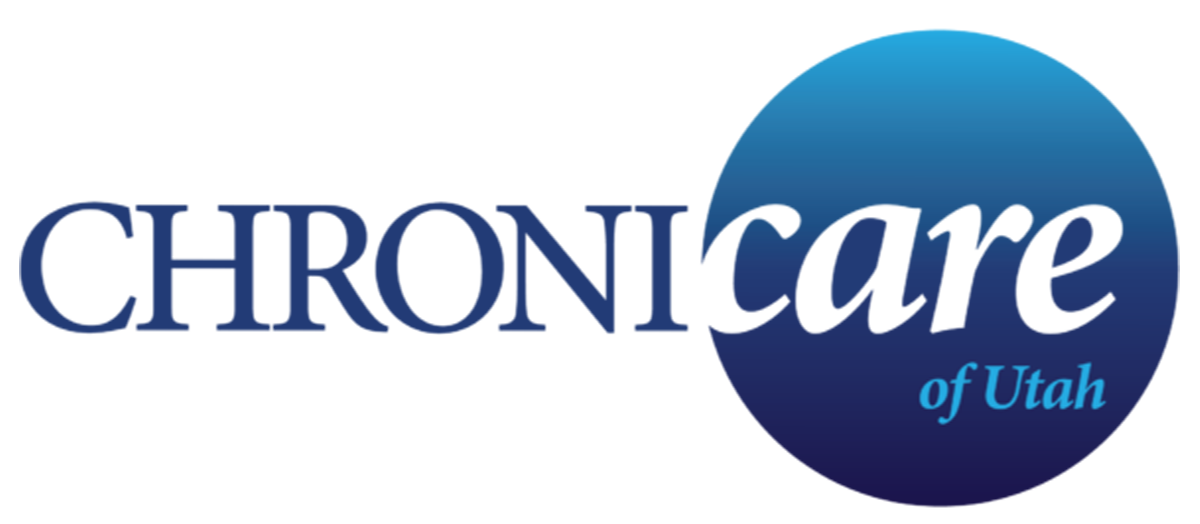The Unresolved Thyroid
Introduction to Functional Thyroid Disorders
Functional thyroid disorders are very common and generally overlooked in today’s healthcare model. Most patients that have functional thyroid imbalances do not have primary thyroid imbalances. Thyroid metabolism is very sensitive to slight alterations in metabolism. Thyroid hormone synthesis is altered by luteal phase function, progesterone, and autoimmunity, etc. Thyroid hormone binding is influenced by essential fatty acid metabolism, testosterone, estrogen, etc. Thyroid hormone peripheral conversion is dependent on proper 5’diodinase activity and can be altered by cortisol, estrogen, hepatic dysfunction, dysbiosis, etc. Thyroid hormone receptor binding and response may be altered by inflammation, vitamin A status, and essential fatty acid levels, etc. In this section of the notes we will briefly review thyroid hormone physiology, laboratory markers for thyroid evaluation, nutrients to support the thyroid, exogenous thyroid hormone replacement, and drugs that alter thyroid metabolism.
Thyroid Physiology Review
Once the thyroid is stimulated by Thyroid Stimulating Hormone (TSH) from the pituitary, it produces thyroxine (T4) and triiodothyronine (T3) by transporting iodine into the thyroid and by stimulating Thyroid Peroxidase Activity (TPO). TPO is involved in the formation of T4 and T3 as it catalyzes the oxidation of iodine using hydrogen peroxide. The thyroid will produce 94% of the available T4 and 7% of the available T3. As we know, T4 is inactive and T3 is an active thyroid hormone. Therefore, the majority of hormone production at the thyroid is inactive T4. Once the thyroid has produced T4, it is metabolized peripherally from the thyroid into combination T3 hormones by the enzyme 5’ deiodinase, mostly at the liver. Under normal circumstances, about 40% of the available T4 is converted into T3, 20% is converted into reverse T3 (rT3), which is irreversibly inactive, and 20% is converted into T3 sulfate (T3S) and triiodothyroacetic acid (T3AC). T3S and T3AC are inactive thyroid hormones until they circulate into the gastrointestinal tract and are acted upon by intestinal sulfatase into active T3. Gastrointestinal sulfatase activity is dependent upon a healthy gut microflora.
Low Thyroid Symptoms
Fatigue
Increase in weight gain even with low-calorie diet
Morning headaches that’s wear off as the day progresses
Depression
Constipation
Hypersensitivity to cold weather
Poor circulation and numbness in hands and feet
Muscle cramps while at rest
Catches colds and other viral/bacterial problems easily and has difficulty recovering
Wounds heal slowly
Excessive amount of sleep required to function properly
Chronic digestive problems (hypochlorhydria)
Itchy dry skin
Low Thyroid Signs
Dry or brittle hair
Hair falls out easily
Dry skin
Low axillary temperature (this may also be caused by any endocrine imbalance)
Edema, especially facial (myxedema)
Loss of outside portion of eyebrows
Understanding Thyroid Markers and Panels
TSH: Thyroid Stimulating Hormone (TSH)
is also called thyrotropin. The pituitary releases this hormone after the hypothalamus releases TRH (thyrotropin-releasing-hormone). This is the most common marker used to assess thyroid function and it is also the most sensitive. The TSH levels increase when the T4 levels drop, and the TSH falls when T4 levels increase. This is the only test performed in the traditional health care model as a means to screen the patient for thyroid disorders; this is because they are only concerned for screening the thyroid for hormone replacement and not optimal physiological function. A TSH test alone does not consider thyroid pituitary feedback loops, peripheral thyroid metabolism, or potential or active risk factors as identified by antibody testing. A high TSH with or without changes in T4 or T3 is diagnostic to determine hypothyroidism. If the thyroid is not making enough T4, the pituitary will pump out TSH to stimulate its production. A low TSH is used to determine hyperthyroid activity. If the thyroid is overactive such as in Grave’s disease, the antibodies bind to active thyrotropin(TSH) receptors on the thyroid cells and stimulate T4 production without the influence of TSH. Please note that some antibodies may inhibit thyroid function by inactivating instead of stimulating thyrotropin receptors. This is called an autoimmune hypothyroid. These patterns will demonstrate a hypothyroid pattern (elevated TSH) with elevated thyroid antibodies.
Total Thyroxine (TT4): The TT4 test measures both bound and unbound thyroxine levels, therefore, it does not give the activity of T4 when measured alone. This test is best completed with a T3 uptake. The free thyroxine index (FT4) can be calculated by using the T3 uptake and demonstrating a level of T4 activity. Total T4 levels can be altered by many drugs.
Free Thyroxine Index: As stated earlier, the total thyroxine and T3 uptake must be used together to calculate the FT4. The index is measured by multiplying the TT4 levels by the T3 uptake levels. The result is the FT4 and it determines the amount of active T4 available. The impact of drugs, as will be discussed, will always impact T4 and resin T3 uptake levels in opposite directions due to its impact on binding sites. If the TT4 level is depressed, then the T3 uptake is high; if the TT4 is elevated, the resin uptake is low. Please note that even if you are taking drugs that may impact thyroid binding, the free thyroxine index should be within the normal range if your thyroid is functioning normally.
Free Thyroxine (FT4): The free thyroxine test is used to measure the amount of free or active T4 in the blood. All the factors such as drugs and physical conditions that may impact the TT4 do not impact the FT4. The level of T4 in the blood is high with hyperthyroidism or low with hypothyroidism. Please note that even a high TSH with normal T4 is enough to diagnose hypothyroidism. A rare pattern is an elevated T4 without hyperthyroidism, which may be related to a hereditary condition of thyroid resistance. Elevated Free T4 may also be caused by patients taking heprin or by an acute illness that my briefly cause the binding protein levels to suddenly fall. If an illness becomes severe and chronic, it may decrease the FT4 levels but it is not a thyroid disease.
Resin T3 Uptake: The Resin T3 Uptake measures the amount of sites for active (unbound) T3 to bind on thyroxine-binding proteins. This test is performed by mixing the blood with radioactive thyroid hormones. These radioactive hormones then combine with binding sites on thyroxine-binding proteins. The blood is then exposed to a substance called a resin that will bind the unbound thyroid hormones, and measure for radioactivity. The result can be expressed as the percent of radioactivity found on the resin compared to the original radioactivity that was added. The more binding sites that are open on the proteins, the lower the resin-uptake result will be, and vice versa. For example, anything that reduces the binding sites, such as elevated testosterone or testosterone replacement therapy, causes a low T4 measurement because it leaves very few binding sites for any more thyroid hormone to bind to it. If T3 is added to the sample of the blood, little T3 will be bound. This pattern would have low TT4 levels and high Resin T3 Uptake levels. On the other hand, anything that raises the binding sites, such as estrogen or birth control pills, would cause a pattern of high TT4 and low T3 Uptake.
Free Triiodothyronine (FT3): This test measures the free T3 hormone levels. This test is rarely completed in traditional endocrinology. It is typically only used in a situation where the patient has hyperthyroid, yet the FT4 levels are normal. However, the FT3 test is the best marker to see what amount of active thyroid hormones is available for the thyroid receptor sites.
Reverse T3 or (rT3): This test measures the amount of reverse T3 that is produced. The production of rT3 typically takes place in cases of extreme stress such as major trauma, surgery, or severe chronic stress. It appears that the increased production of reverse T3 is due to inability to clear rT3, as well as from elevated cortisol.
Thyroid Antibodies: Thyroid auto-antibodies indicate that the body’s immune system is attacking itself. Production of thyroid auto-antibodies may create a hypothyroid or a hyperthyroid state. Some antibodies attach to the TSH receptors but do not cause a response. Therefore, the patient will complain of low thyroid symptoms, however the serum TSH may not be altered. It is just not able to cause a cellular change. On the other hand, some antibodies will bind to the receptor sites and cause over-activation of the thyroid. This will present as elevated T4 levels, a low TSH and elevated thyroid antibodies.
Drugs That Influence Thyroid Metabolism
Drugs that decrease TSH secretion:
Dopamine
Glucocorticoids
Octraotide
Drugs that later thyroid hormone secretion by decreasing secretion:
Lithium
Iodide
Aminoglutethimide
Drugs that alter thyroid hormone secretion by increasing secretion:
Iodide
Amiodarone
Drugs that decrease T4 absorption:
Colastipol
Cholastyramine
Aluminum Hydroxide
Ferrous Sulfate
Sucralfate
Drugs that alter T4 and T3 transport in serum by increasing TBG concentrations:
Estrogens
Tamoxifen
Heroin
Methadone
Mitotane
Fluorouracil
Drugs that alter T4 and T3 transport in serum by decreasing TBG concentrations:
Androgens
Anabolic Steroids
Slow-Release Nicotinic Acid
Glucocorticoids
Drugs that alter T4 and T3 transport by displacement form protein-binding sites:
Furosemide
Fanclofanac
Mefenamic acid
Salicylates
Drugs that alter T4 and T3 metabolism by increasing hepatic metabolism:
Phenobarbital
Rifampin
Phenytoin
Carbamazepine
Drugs that decrease T4 5’deiodinase activity:
Prophylthiouracil
Amiodarona
Beta-Adrenargic Antagonist Drugs
Have you been treated without success? Been told to “live with it”? Are you tired of taking drugs that don’t fix the problem? Not getting any better? There is new HOPE. If you’re tired of dealing with this problem and are worried about it getting worse, call us for a FREE consultation.
